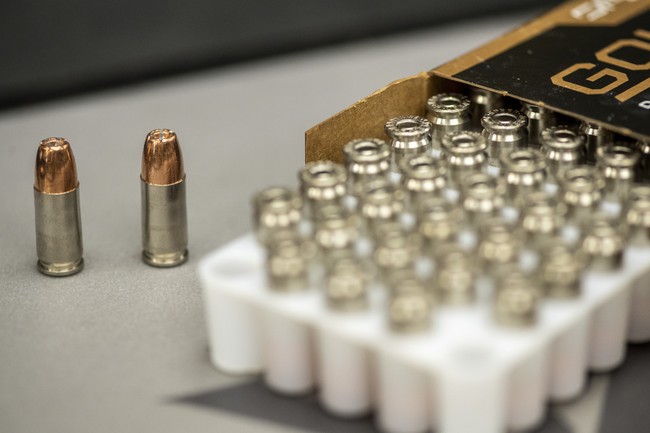The Illinois Supreme Court has once again managed to avoid ruling on the constitutionality of the state’s Firearm Owner ID card, though gun owners did fare better when it comes to challenging Cook County’s tax on firearms and ammunition purchases.
The court denied a request by Thomas Maag to rule on whether the state of Illinois can revoke or suspend FOID cards from individuals who’ve been charged, but not yet convicted, of a felony offense, instead deciding that the case was moot because Maag’s clients have since had their FOID cards reinstated after pleading guilty to misdemeanors. Maag contended during oral arguments back in May that the challenge should be allowed to proceed, given that the law “is enforced routinely, thousands if not tens of thousands of times a year.”
Despite that argument, justices unanimously enjoined the suspension of FOID cards for the litigants but vacated a lower court’s ruling the law was unconstitutional.
“In entering this disposition, we express no opinion on the merits of the parties’ other arguments. As we are vacating the circuit court’s judgment in favor of plaintiffs, they are no longer the prevailing parties, so we also vacate the circuit court’s order granting plaintiffs’ petition to recover costs and fees,” the ruling said. “The cause is remanded to the circuit court with directions to dismiss plaintiffs’ first amended complaint.”
While the state’s highest court was able to sidestep a ruling on the constitutionality of the FOID requirement in this case, The Center Square’s Greg Bishop reports that an appellate court is moving forward on another challenge to the FOID mandate, with oral arguments set for November 14th in a challenge brought by Illinois 2A group Guns Save Life. The state Supreme Court has repeatedly ducked a direct decision on the FOID card’s constitutionality, but the Guns Save Life case will likely reach the justices at some point next year, and could force the court to finally decide whether the permit, which is required to possess a firearm in the home, violates the right to keep and bear arms.
Gun owners fared better with the state Supreme Court in a challenge to Cook County’s tax on gun and ammo purchases. Todd Vandermyde, a longtime Second Amendment lobbyist and advocate in Illinois, sued Cook County on Second Amendment grounds shortly after the county modified its tax in 2021.
After a district court dismissed the case, earlier this year an appeals court reinstated the challenge. Wednesday, the Illinois Supreme Court denied the county’s request to appeal the case there. Vandermyde said recent U.S. Supreme Court precedent said gun control laws must have historical analogs.
“Once it’s protected conduct, it’s up to the state to show an analogy against, you know, that ‘hey, laws like this existed either in 1791 or maybe around 1868,” Vandermyde told The Center Square.
Vandermyde said it’s back to the district court and if the state can’t show laws from the time of the U.S. Constitution’s ratification, they have “a hard row to hoe.”
The state Supreme Court’s decision doesn’t mean that Vandermyde will prevail in district court, but it at least puts the onus on Cook County to explain how its law fits within the national tradition of gun ownership and the text of the Second Amendment’s protections. As Vandermyde says, it’s going to be difficult for the state to do so, given the absence of any firearm-specific taxes imposed around the time of the Founding. During colonial times the British government did impose import taxes on a variety of goods, including gunpowder, but that’s quite a bit different from Cook County’s tax, which specifically targets lawful purchases of constitutionally-protected arms and ammunition; essentially taxing the exercise of a civil right.
If Cook County wants more money from taxpayers to fund violence prevention efforts, it can tax residents equally. Singling out gun owners and demanding they pay more than their fair share of the county’s public safety budget, on the other hand, has a chilling effect on the right to keep and bear arms, and will hopefully soon be struck down by the Illinois courts.
Read the full article here





